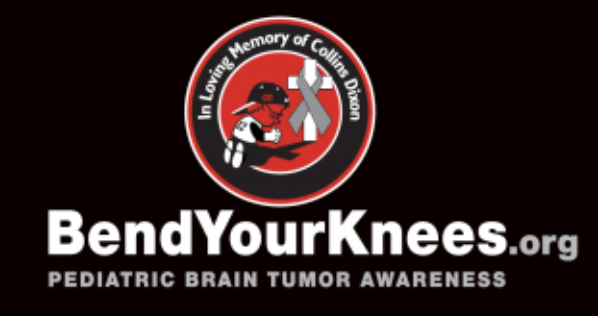Loss of a Loved One: How to Cope with Grief
By Craig Meadows
The Bend Your Knees Foundation spreads awareness of Brain tumors in children, supports families with a child that has a brain tumor, and supports other organizations that work with children with brain tumors. Reach out today for more information by calling or texting 404-271-1360.
The loss of a loved one is devastating. It spurs up difficult emotions that envelop your life with a feeling of fogginess. The wave of grief may affect your everyday life and ability to cope. However, grieving can help you to gain a new perspective on life and renewed strength. The Bend Your Knees Foundation offers some suggestions to help you heal from the loss
Memorialize your loved one
It is normal to want to numb the pain and anxiety you experience by putting away anything that reminds you of your loved one. Though it may seem counter-intuitive, consciously memorializing your loved one may ease some of the sadness.
Initially, it may be difficult to look at photos of the deceased. There may be days that a conscious memory of the loved one may make you anxious and vulnerable, but with time your heart and mind will get used to it. Their memory will be less painful, and you may even grow a fondness for those memories.
Involve yourself in organizing their funeral and designing their tombstone. Coordinate a memorial service where you can come together with other people to share memories and light candles for the loved one. Instead of putting away their photos, create a scrapbook with your favorite memories or write a poem about them. Regularly visit their grave.
Also consider setting up a nonprofit in their honor, as did the parents of the late Collins Dixon when they started The Bend Your Knees Foundation.The purpose of the nonprofit could be any cause that your loved one supported during their lifetime, such as helping the homeless or giving to organizations like The Salvation Army. Starting a nonprofit does not have to be complicated, but there are certain legal formalities to adhere to. A formation service like ZenBusiness can help walk you through the process.
Create a routine for yourself
Grieving has a way of disrupting your life. It makes things that were a top priority seem meaningless. It drains your energy and may cause you to feel exhausted, anxious and lethargic. In such a scenario, it takes being intentional to focus your energy in a meaningful and purposeful way.
The Grief Toolbox suggests creating a routine that enhances healing will help you get through this difficult time better. In your routine, schedule some time to get outside for a walk or simply to catch a glimpse of the skies and clouds. Consider joining a support group so that you spend some time each week with people going through a similar phase as you.
Set time aside to nourish your spirit. Some people find comfort in prayer, meditation or spending time in nature. Identify a spiritual practice that works for you and spend some time engaging in it daily.
Forgive
When grieving, it is natural to feel resentful of yourself for things you didn’t say to or do with the loved one while they were alive. You may feel angry at the departed for leaving without saying goodbye. Such resentment can hold you back from healing. You need to forgive yourself and your loved one. WhatsYourGrief.com explains that a common tool used in grieving therapy is to write a letter to the deceased asking them to forgive you and stating your forgiveness.
Creature comforts
It is scientifically proven that a hug floods the human body with oxytocin, which lowers stress levels. Therefore, it shouldn’t come as a surprise that a furry snuggle from your dog may help you feel less lonely and devastated.
Taking time to care for a dog will distract you from the painful emotions you are experiencing. On days when you badly want to talk about your loved one or the emotions you are going through, but don’t have the courage to talk to people, your dog will offer you a caring listening ear. And, you can be sure she won’t judge or criticize you.
Grieving, difficult as it is, may have transformative effects. It can teach you to face fears, open your heart in new ways in your relationships, set new priorities and find direction in life. Find ways to make the process more bearable for yourself.
Written by: Craig Meadows, Founder of Surviving Day One Survivingdayone.com | craig@survivingdayone.com
Photo Credit: Pixabay


